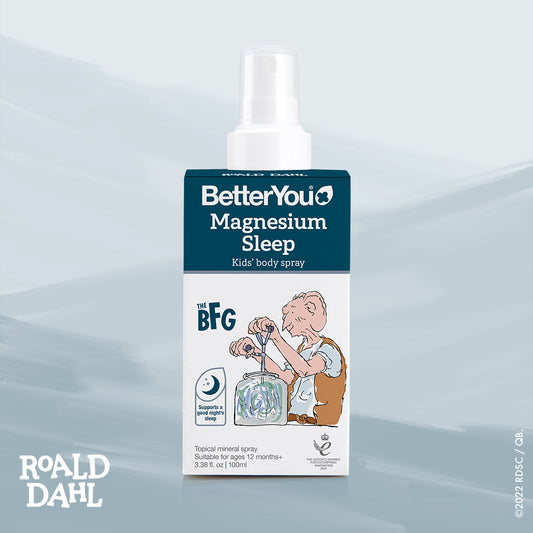Help your child to sleep to prepare your little ones, and yourself, in the best way for every day. If your little one hasn't had enough sleep it can result in mood swings, irritability, and even hyperactivity. Lisa Artis, sleep advisor from The Sleep Council, shares some expert tips for getting your children to sleep peacefully each night.
Table of Contents:
- Why Is Sleep So Important for Children?
- How Much Sleep Do Children Need?
- 6 Steps to Help Your Child Sleep
Why Is Sleep So Important for Children?
Helping your children to sleep is very important, because sleep directly impacts their mental and physical development. Sleep is important for health and it benefits children in many ways, including:
- Supports memory consolidation
- Helps with learning
- Allows children to internalise the day’s activities
- Supports the body to repair and regenerate
A lack of sleep or poor-quality sleep interrupts this process and can have a negative impact on a child’s development. Without time to repair, physical development can be stunted. This is why many may turn to sleep supplements to help support your children sleeping.
Unfortunately, sleep isn’t taken as seriously as it should be. If a child’s development was suffering due to a lack of food or nutrition, we’d naturally be horrified and would act on this immediately, but the same can’t be said for sleep deprivation.
As any parent knows, lack of sleep has a severe negative impact on a child’s mood and behaviour. If your child hasn’t had enough sleep, this can result in:
- Mood swings
- Irritability
- Hyperactivity
All of this can reduce a child’s concentration levels and lead to poor performance in the classroom, which is why it is essential to help your children sleep.
How Much Sleep Do Children Need?
Everyone needs varying amounts of sleep, but it’s important to help your child sleep as much as they need.
As a general rule:
- Under 3s: Around 12 hours sleep per night
- 4-6-year old: 10.5-11.5 hours sleep per night
- 6-12-year old: Around 10 hours
- Teenagers: 8-9 hours
If you want to help your child sleep before their return to school, ideally you want to start a transitional routine about a week to 10 days before they go back. You can do this by bringing bedtime 10-15 minutes closer to the norm every 2 days. You’ll soon find until you're back to helping your child sleep with a healthy bedtime that promotes development.
6 Steps to Help Your Child Sleep

Try these six tips to create a relaxed bedtime and help your child sleep better and achieve a quality, natural night’s rest.
1. Magnesium Supplements to Help Children Sleep
Children need magnesium as a part of their balanced required intake of vitamins and minerals. Magnesium can support sleep because it is known to help relax muscles. Therefore, to help your child sleep, try including this mineral into their nightly routine.
Try massaging Magnesium Sleep Kid’s Body Lotion into your child’s skin as part of your routine. The Sleep Lotion is suitable for 1 years+ and contains chamomile and lavender to help relax the mind. You could also help your child to sleep by combining magnesium bath flakes with their nightly bath.
2. Ensure They Have a Sleep Boosting Supper
Supper is a great way to ensure your child isn’t hungry through the night and can actually aid the sleep process, as long as it’s low in sugar. Try giving them a combination of protein and carbs as these form amino acids that act like tryptophan, a chemical that makes you feel sleepy. Oatmeal with milk, or wholemeal toast with natural peanut butter are great supper to give your child to help them sleep.
3. Help Them Relax with Bath Time
Shortly before bed, a warm relaxing bath can signal that it’s time to start winding down and could help your children sleep better. The drop in body temperature after getting out of the bath is a prompt for the body to start producing melatonin, the hormone that regulates sleep-wake cycles which can act as a natural sleep aid.
4. Implement a Bedtime Routine
Children thrive on routine, doing the same thing every night acts as a prompt to the body and the mind that it’s time to sleep soon and begin to wind down. Multiple sensory cues will signal to the body to let it know that it’s time for bed. Therefore, keeping a regular schedule could help your child sleep better.
5. Maintain Quiet Time Before Bedtime
As part of that sleep routine, before bedtime, start a ‘quiet time’ to allow your little ones to unwind. Introduce less physically stimulating activities such as colouring, doing a jigsaw or reading, which will keep them entertained but let their minds start to relax before they need to drift off.
6. Limit Blue Light Device Use
As you get closer to bedtime, ideally an hour before, ditch smartphones, tablets and TVs. This is because they not only stimulate the brain and make children more awake, but the blue light from these devices suppresses the production of melatonin. Therefore, setting a time to put away these devices can help your children to sleep.
You can watch the video of the Q&A with Lisa Artis, sleep advisor from The Sleep Council (now the Sleep Charity), below:
Supplements for the Whole Family
At BetterYou, we’ve pioneered pill-free supplementation and transdermal magnesium. The whole family can benefit, with energy supplements for that needed boost, to menopause supplements for that transitional time in life.





















